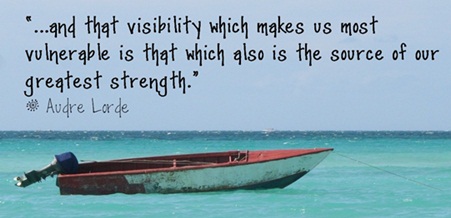To be vulnerable is to be susceptible to physical or emotional injury. Mankind’s vulnerability increased considerably after the Enlightenment. With both technological progress that estranged us from our natural, original state and social rights that allowed us to be ourselves, sometimes in spite of the norms, humanity gained knowledge and freedom, but lost something just as important: the original strength.
In his Second Discourse, Discourse on the Origin and Foundation of Inequality Among Men, Jean-Jacques Rousseau argued that as soon as men started to depend on each other, they lost that basic, almost savage instinct which allowed them to survive in the wilderness. He claimed that, with the Enlightement, mankind found itself further away from its original state than ever. A kindred idea is exposed in Ralph Waldo Emerson’s essay, Self-Reliance. He believed society never truly improves and neither does man. Some industries will flourish and other will decay, because the society recedes as fast on one side as it gains on the other. […] Society acquires new arts, and loses old instincts. Just as the man who has found education but has lost his aboriginal strength.
Thus, we can see how humanity has become vulnerable in the face of nature. Progress made our lives easier, longer, but also dependent on machines. It gives us the illusion of freedom, but puts us under the yoke of conformity in order to be accepted, approved. This led to emotional vulnerability, one that is far worse than the physical one. Whilst there are meds for almost every disease, the stress, the unhappiness, the feeling that one does not belong to a certain medium are like worms eating away the core of one’s being. If a person is different, society will, more often than not, punish the said person, rather than reward her/him.
Although Emerson does not use the world vulnerability, it is written between the lines of his essay. He urges us not to conform to anything, but to stand on our own two feet, to care only about our present thoughts, even though they may not be true anymore the following day. The fear of being misunderstood, of being judged – in other words, the fear of being vulnerable in the face of your family, your friends, society etc. – should account for nothing, because the only thing that matters is to be true to ourselves and accept the fact that change is natural and if it happens to take us in the opposite direction of our yesterday ego, we should just embrace it.
This emotional vulnerability is explored by other philosophers as well. Just look at Michel Foucault’s Madness and Civilization, an account of madness and how society dealt with it over different periods of time, making the mad, the different, susceptible to injuries, just because the latter could not conform to the accepted norms, to the consensus of what is normal. Or at Slavoj Žižek’s essay, You May!, in which there’s a seemingly humorous example that highlights the vulnerability which came, in time, with what used to be natural human interactions: men cannot know whether their approach will be considered courting or sexual harassement until the woman reacts positively or negatively.
Through human rights we gained the freedom to be ourselves. In time, we have also found the courage to do that. In a world that is still prejudiced, Judith Butler wrote Undoing gender, one of her many works on the subject. She believes that “gender” is a product of society and explores the issue of those that don’t conform to the norms and how vulnerable they are in a medium that’s set on destroying everything that’s unusual. From the witch hunts in the Medieval Era to today’s discrimination, the more different one is, the more prone to emotional and physical injuries one is. For example, she states that the risks of discrimination, loss of employment, public harassment, and violence are heightened for those who live openly as transgendered persons. She also claims that the discrimination of women – especially poor women or women of colour – is more severe than other forms of discrimination.
It seems that the further we find ourselves from our starting point, the more dependent on technology we are, seeing as our natural state is no longer as strong as it used to be. Also, even though most of the people enjoy the freedom to be themselves, there are still those who suffer for things that were not their choice – gender, race, place of birth, sexuality. We are more vulnerable than ever, both physically and emotionally. We can succumb to this weakness or we can fight it. Because it is in the hard times that true strength emerges. It might not be the aboriginal one, but it could be just as powerful.
—
Cited Works
Jean-Jacques Rousseau – Discourse on the Origin and Foundation of Inequality Among Men
Ralph Waldo Emerson – Self-Reliance
Judith Butler – Undoing gender

